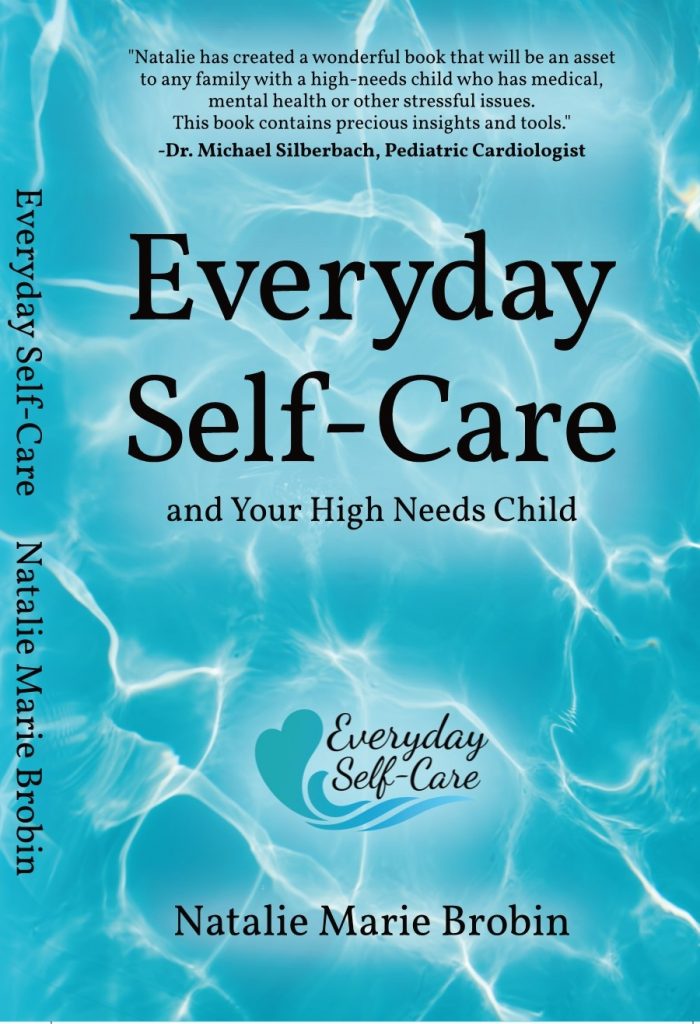By Natalie Brobin
When my best friend died suddenly, I completely fell apart. I didn’t have the tools for self-care or if I had them, I couldn’t access them. I was miserable and so was everyone around me. I had numerous PTSD symptoms but didn’t know what to do with them. I held my breath constantly and got a lot of headaches. My flashbacks were relentless and contributed to my disbelief that she died. It was a very difficult time in my life. I learned the hard way that self-care is a necessity.
When bad things happen, how do we take care of ourselves? All bad events trigger a different stress-response in everyone. Living with that stress and anxiety is very lonely. The reality is that bad things happen and I cannot fall apart every time. These are some of the tools I use now.
Breathe
First of all, I breathe using some of the basic breathing techniques such as six-count belly breathing and alternate-nostril breathing I learned while taking yoga teacher training.
Here are two examples of breathing exercises to calm and centre your mind.
Six-Count Belly Breaths
This practice slows down your heart rate and calms your nervous system. Put one hand on your stomach and the other on your diaphragm. Picture your torso as a glass. Breathe in and out through your nose. When you breathe in, you fill the glass from the bottom to the top, from your stomach up to your shoulders. As you breathe out, you empty the glass slowly from your shoulders down. I do this to a six-count, but you can do what works for you as long as it is a deep breath for you. Do this for five minutes.
Alternate-Nostril Breathing
This practice balances the left and right sides of the brain. Use a four to six-count on each inhale and exhale. Use the thumb of the right hand to close the right nostril and inhale through the left side. Then, use the index finger of the right hand to close the left nostril, exhale through the right. Next, inhale right and exhale left. Continue for 10 rounds. You are exhaling and inhaling on one side and then moving to the other side to exhale and inhale.
Talk to Someone
Reach out. Find someone who gets you. Someone who can help. I finally found a therapist that could help me unpack my childhood trauma to see how it affected my life after my best friend died. We all need something different. Here are some other suggestion:
1) Another parent of a child with the same diagnosis
2) Facebook and other online groups
3) Advocacy groups
4) Longtime friend
5) Family member and more
Radical Acceptance
Initially, I have to accept the reality that another person has died of the same heart defect as my child. In Dialectical Behavior Therapy (DBT), they call this Radical Acceptance. It’s not an easy concept, but it can help you move on from terrible news. It does not mean that you approve of what has happened, but you stop fighting the effects of the bad news.
Ways to practice Radical Acceptance
1) Notice that you are fighting reality
2) Turn your mind to acceptance
3) Use your body to help you
4) Act as if (you accept this reality)
Morning Yoga Practice
Most mornings, I do some breath work, movement and/or meditation as part of my morning practice called Sadhana. It helps calm my mind at the start of my day. Now, I am at the point, most days I wake up without my negative internal dialog.
Take a Break from Social Media
While I am a firm believer that social media can be a source of support for medical parents, sometimes taking a break from it is important as well. It can be overwhelming to hear others’ anguish over their child’s illness when you’re in your own crisis (or not). I have taken “social media” breaks over the years when I’ve needed it and come back when I am ready.
When something triggers my anxiety like the death of a loved one, I feel it fully. What is different now is that I recognize immediately what is happening and I use self-care techniques such as six-count breathing, radical acceptance, talking to someone or yoga to calm me down..
What do you do?
How do you prioritise your own health when you’re the parent of a high-needs child?
Natalie Brobin’s life turned upside down when she found herself struggling to care for a daughter with a rare chromosomal disorder called Turner Syndrome, which can cause heart defects and delayed growth, among other health issues, particularly in girls. Struggling to prioritise her daughter’s health amidst the everyday madness of raising two other children and thus juggling carpools, diving practices, family commitments and neighbourhood get-togethers, Brobin eventually had a nervous breakdown after a dear friend’s death by suicide that left her determined to find another way to live. After rediscovering herself through a combination of therapy, yoga, advocacy work and writing, Brobin discovered the path to self-care for any parent of a special needs child (or even a typical one). Everyday Self-Care and Your High Needs Child provides concrete ideas on how to reduce stress through breathwork, meditation, nutrition, healthy sleep, therapy, laughter and positive outlets for stress.
Written in concise chapters, and drawing from the experience of other parents as well as the input of doctors, this book is the informed, experienced life coach in your pocket that every parent of a special needs child can use.
About the author
Natalie Brobin who has a Journalism degree writes about parenting, trauma, loss, grief and life. A registered yoga instructor and a Yoga Recovery 2.0 Coach, she’s been published in The Mighty, Thrive Global and Light Hustler. She’s also been featured in and on multiple media outlets for her advocacy on behalf of Turner Syndrome—the rare genetic disorder her daughter has. A dedicated volunteer for the Turner Syndrome Society of the United States, Brobin is currently working on a book called Everyday Self Care During Grief. Her blogs can be found at www.everydayself-care.com. She recently moved to California and enjoys daily walks on the beach.





